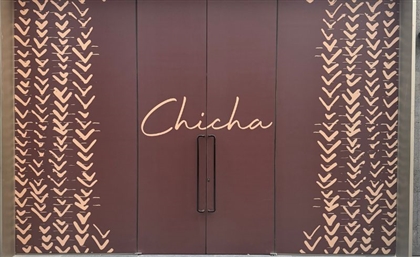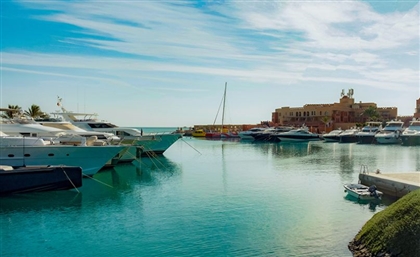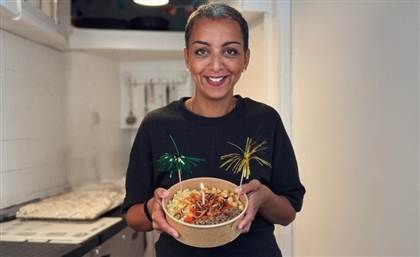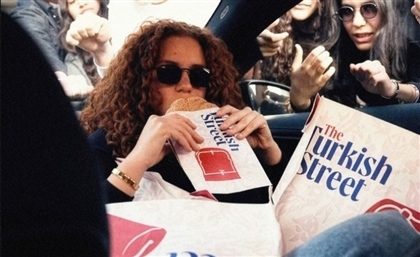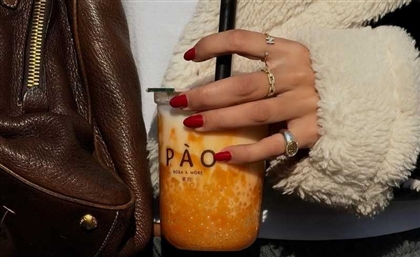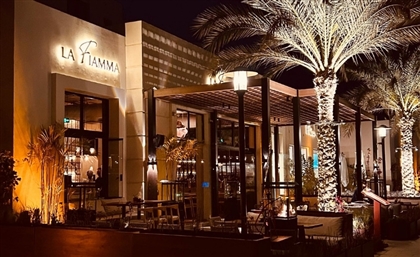The Night El Gouna’s Coastline Became a Collaborative Kitchen
Four chef duos, one Red Sea island, and a dinner built on movement, dialogue, and the ethos shaping El Gouna’s emerging culinary identity.
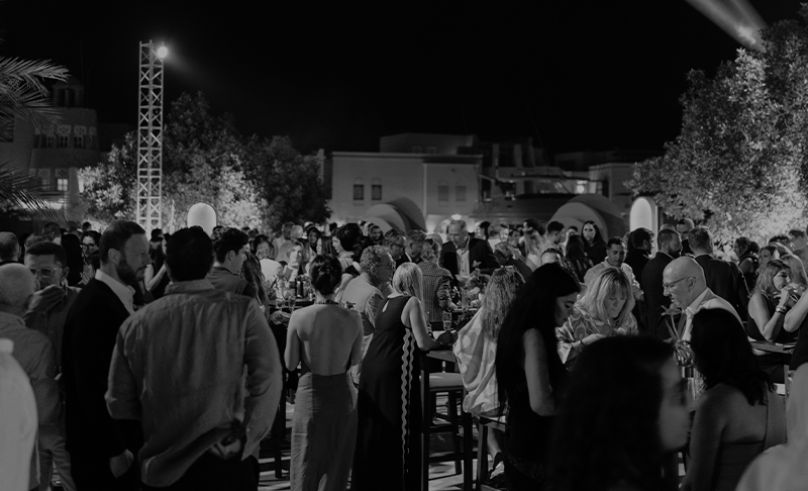
El Gouna Red Sea’s newly-opened ‘Island’ came into view slowly, its edges caught in the last of the evening light. Guests crossed the wooden bridge in a steady, unhurried stream, the Red Sea on both sides reflecting a dusk that felt almost deliberate in its calm. It was a fitting entrance for what would become one of the defining moments of 35 Flavors of El Gouna; a culinary gathering built on intention, collaboration, and the rigour of a town shaping its own cultural identity.
Before the stations opened, El Gouna CEO Mohamed Amer welcomed the crowd with a reminder of where this platform began: in a town built on sustainability long before the word became global shorthand. El Gouna’s ethos, he said, is not decorative but infrastructural — a way of organising life, community, and now gastronomy. His words framed the evening as a marker of cultural ambition.
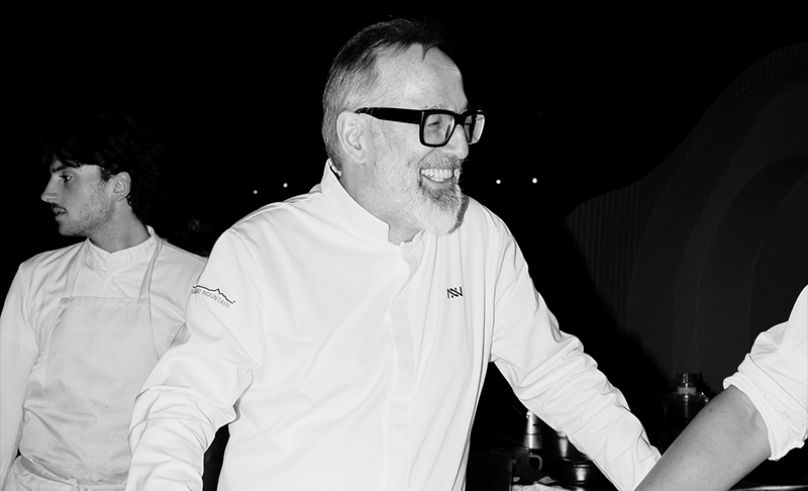 World-renowned Chef Norbert Niederkofler, one of the driving forces behind the culinary showcase, followed with an introduction that set the tone. He spoke not about menus or technique but about the chefs themselves — each cooking in Egypt for the first time, each arriving with their own philosophy, and each stepping into a dialogue with the Red Sea rather than performing above it. With that, the dinner began.
World-renowned Chef Norbert Niederkofler, one of the driving forces behind the culinary showcase, followed with an introduction that set the tone. He spoke not about menus or technique but about the chefs themselves — each cooking in Egypt for the first time, each arriving with their own philosophy, and each stepping into a dialogue with the Red Sea rather than performing above it. With that, the dinner began.
Guests moved freely across the island — no assigned seating, no prescribed order — drifting between stations, tasting dishes directly from the hands that made them, asking questions, lingering when curiosity held them. The openness of the format became its own kind of choreography.
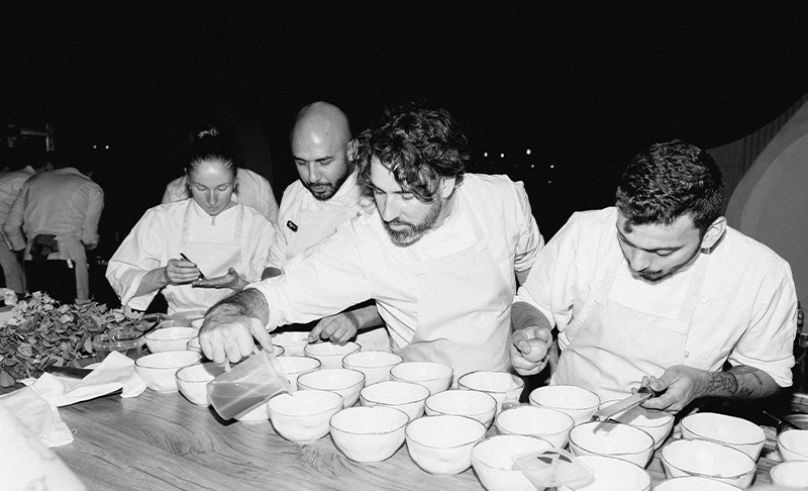 At one end of the Island, culinary legend Norbert Niederkofler worked alongside Saudi chef Turki Bin Hallabi, a collaboration that felt almost topographical. Norbert’s alpine discipline met Turki’s grounded regional instinct, both chefs negotiating a coastline far from their own. A few steps away, Himanshu Saini and Ariel Hagen offered a contrasting interpretation of the same environment — Himanshu’s layered, narrative-driven Indian sensibility playing against Ariel’s Dolomite-born minimalism.
At one end of the Island, culinary legend Norbert Niederkofler worked alongside Saudi chef Turki Bin Hallabi, a collaboration that felt almost topographical. Norbert’s alpine discipline met Turki’s grounded regional instinct, both chefs negotiating a coastline far from their own. A few steps away, Himanshu Saini and Ariel Hagen offered a contrasting interpretation of the same environment — Himanshu’s layered, narrative-driven Indian sensibility playing against Ariel’s Dolomite-born minimalism.
Together, these two stations read the landscape rather than impose upon it. Their dishes carried the imprint of the Red Sea’s heat, its light, and the unfamiliar freedoms that come with cooking in a new geography. Guests stood close, tasting how a coastline can reorient a chef’s instincts.
Further along the island, the mood shifted. Fabrizio Mellino, shaped by the Amalfi Coast and a generational kitchen, worked with Sara Aqel, whose Palestinian-Jordanian culinary identity has always centred women, memory, and reinterpretation. Their collaboration unfolded in quiet dialogue — two Mediterranean lineages meeting on Egyptian soil for the first time, finding overlap in restraint and generosity.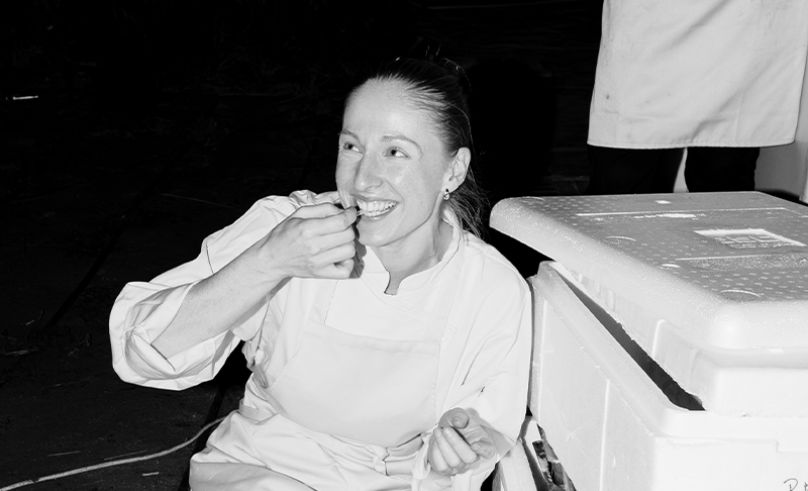 Near them, Daniel Hadida & Eric Robertson joined forces with Tamara Rigo, whose earlier masterclass on zero-waste pastry had already anchored the day in the logic of sustainability. Their station became a small manifesto: technique sharpened by responsibility, creativity defined by what is saved rather than discarded. The trio worked with a kind of quiet urgency, demonstrating how sustainability operates not as a theme but as a discipline.
Near them, Daniel Hadida & Eric Robertson joined forces with Tamara Rigo, whose earlier masterclass on zero-waste pastry had already anchored the day in the logic of sustainability. Their station became a small manifesto: technique sharpened by responsibility, creativity defined by what is saved rather than discarded. The trio worked with a kind of quiet urgency, demonstrating how sustainability operates not as a theme but as a discipline.
Together, these stations grounded the evening in the values that underpin both El Gouna and 35 Flavors: heritage treated with clarity rather than nostalgia, and sustainability positioned as the framework through which new culinary cultures are built.
By the end of the night, the island had taken on the feel of a living blueprint; a sketch of what El Gouna Red Sea’s emerging gastronomic future will look like when chefs of different cultures, disciplines, and generations work side by side. Younger chefs moved in intuitive response to veterans with decades of rigor behind them, each borrowing from the other in real time. Guests moved in loops across the Island, returning to stations, asking for seconds, and continuing conversations that had outlasted the sunset.
For some of the chefs, it was a first encounter with Egypt. For the guests, it was a glimpse of a culinary identity still forming. And for El Gouna Red Sea, it was the articulation of a long-held and innate ethos: to build a cultural platform grounded in sustainability, shaped by global exchange, and defined by a sense of community that feels distinctly its own.




